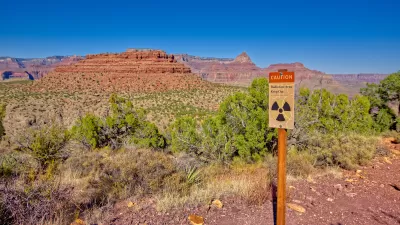Farmers are enjoying high corn prices and may not even have noticed the end of the subsidy on Dec. 31 according to the agricultural economist interviewed on NPR.
"(A)s Iowa prepares to caucus today, Congress let the formerly sacred subsidies expire after more than 30 years and about $20 billion. To talk more about why the era ends now, we called Bruce Babcock. He's the Cargill chair of energy economics at Iowa State University.
BABCOCK: Well, most farmers haven't even realized it's gone, because the price of corn has been so high, and it continues to be high with or without the subsidy. So at the farm level, it hasn't really had much of an impact on them."
As it turned out, the subsidy check went to the refinery, not the farmer, to encourage them to buy corn.
In addition to the subsidy, costing U.S. taxpayers about $6 billion last year, ending, the protective tariff ended as well. But Babcock explains that Brazil's "demand for ethanol has skyrocketed over the last few years, and their domestic supplies haven't been able to keep up. So, somewhat surprisingly, the U.S. has been supplying Brazil with ethanol."
From NYT: After Three Decades, Tax Credit for Ethanol Expires: "We may be the only industry in U.S. history that voluntarily let a subsidy expire," said Matthew A. Hartwig, a spokesman for the Renewable Fuels Association, a trade group for ethanol producers. "The tax incentive is less necessary now than it was just two years ago. Ethanol is 10 percent of the nation's gasoline supply."
"As Congress begins work on a new farm bill, ethanol companies and gasoline station owners want to expand a federal program that helps pay for pumps and other equipment needed to dispense gas with higher concentrations of ethanol."
FULL STORY: Congress Ends Era Of Ethanol Subsidies

Maui's Vacation Rental Debate Turns Ugly
Verbal attacks, misinformation campaigns and fistfights plague a high-stakes debate to convert thousands of vacation rentals into long-term housing.

Planetizen Federal Action Tracker
A weekly monitor of how Trump’s orders and actions are impacting planners and planning in America.

In Urban Planning, AI Prompting Could be the New Design Thinking
Creativity has long been key to great urban design. What if we see AI as our new creative partner?

King County Supportive Housing Program Offers Hope for Unhoused Residents
The county is taking a ‘Housing First’ approach that prioritizes getting people into housing, then offering wraparound supportive services.

Researchers Use AI to Get Clearer Picture of US Housing
Analysts are using artificial intelligence to supercharge their research by allowing them to comb through data faster. Though these AI tools can be error prone, they save time and housing researchers are optimistic about the future.

Making Shared Micromobility More Inclusive
Cities and shared mobility system operators can do more to include people with disabilities in planning and operations, per a new report.
Urban Design for Planners 1: Software Tools
This six-course series explores essential urban design concepts using open source software and equips planners with the tools they need to participate fully in the urban design process.
Planning for Universal Design
Learn the tools for implementing Universal Design in planning regulations.
planning NEXT
Appalachian Highlands Housing Partners
Mpact (founded as Rail~Volution)
City of Camden Redevelopment Agency
City of Astoria
City of Portland
City of Laramie





























